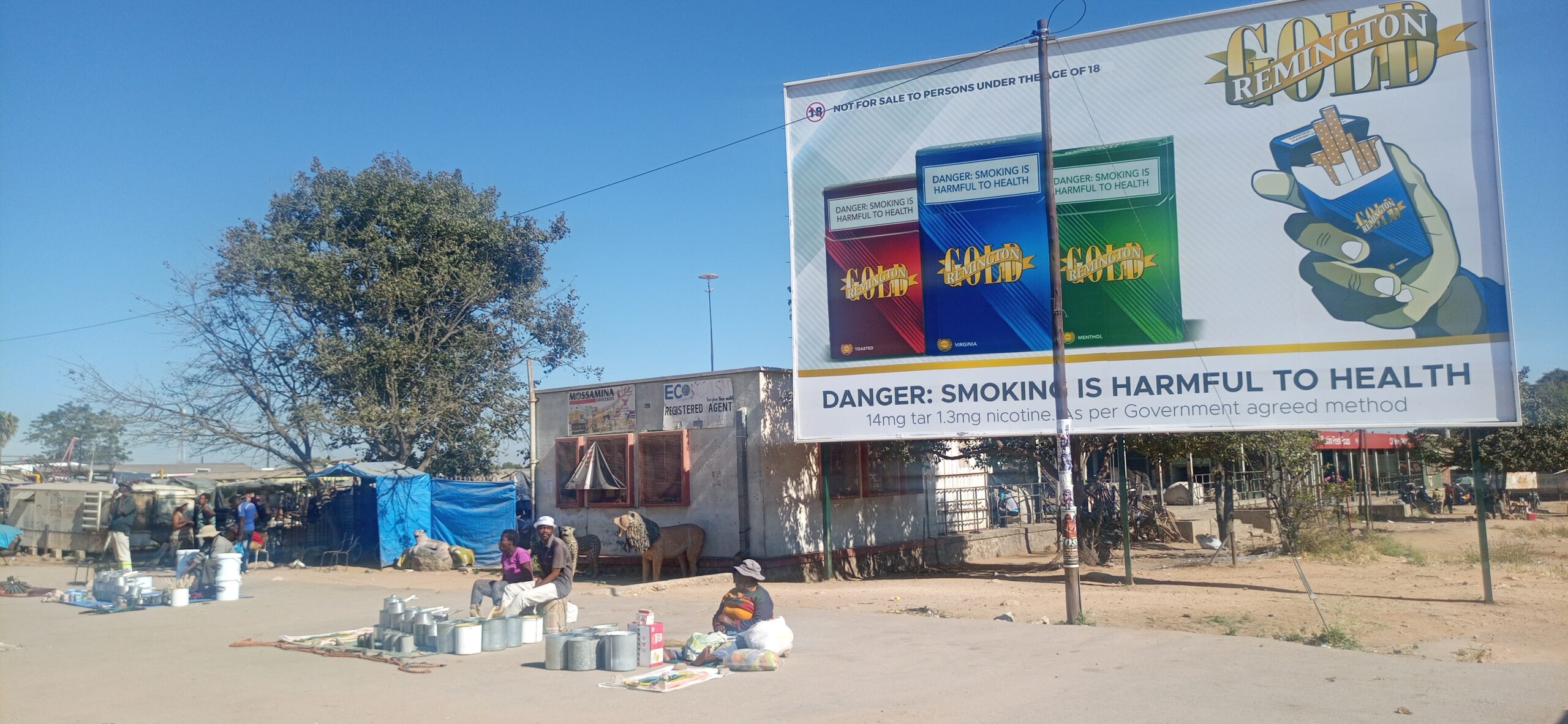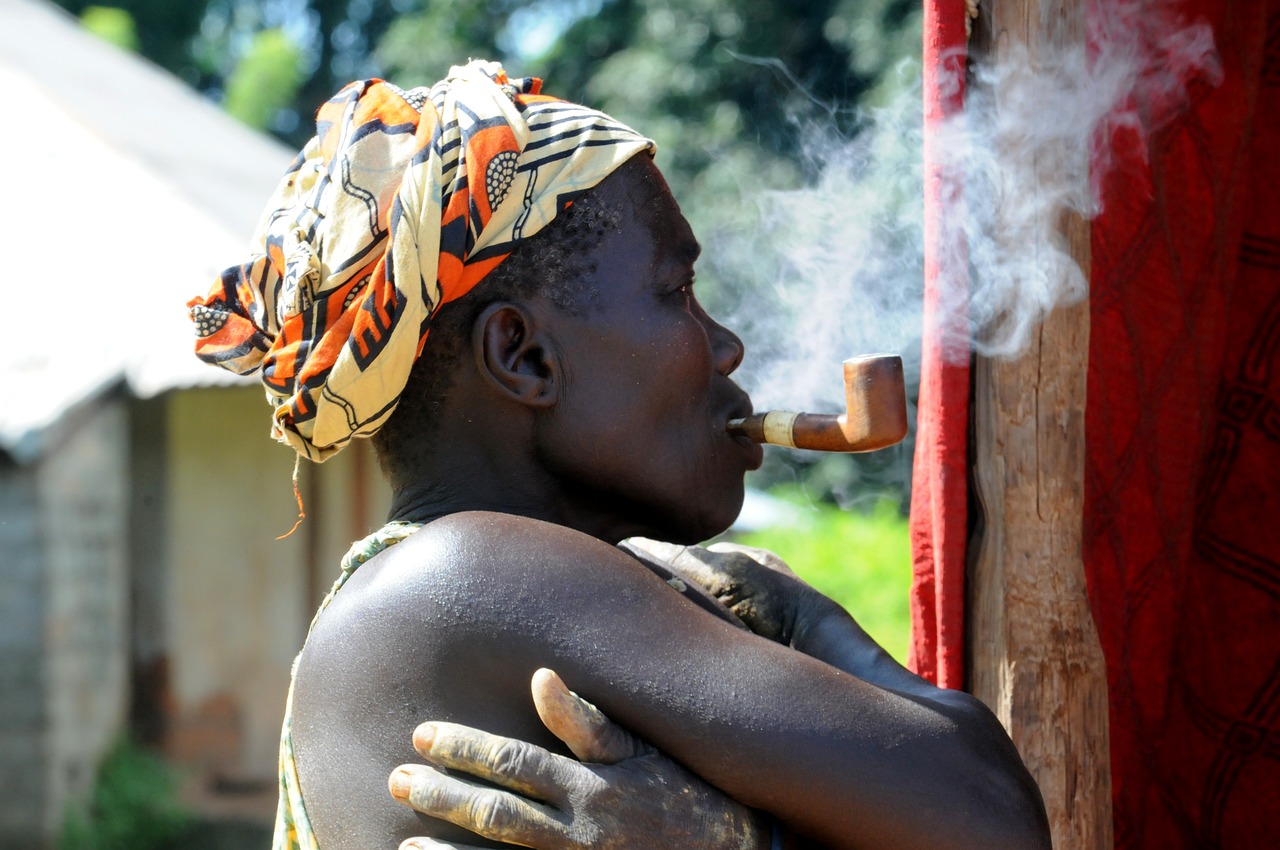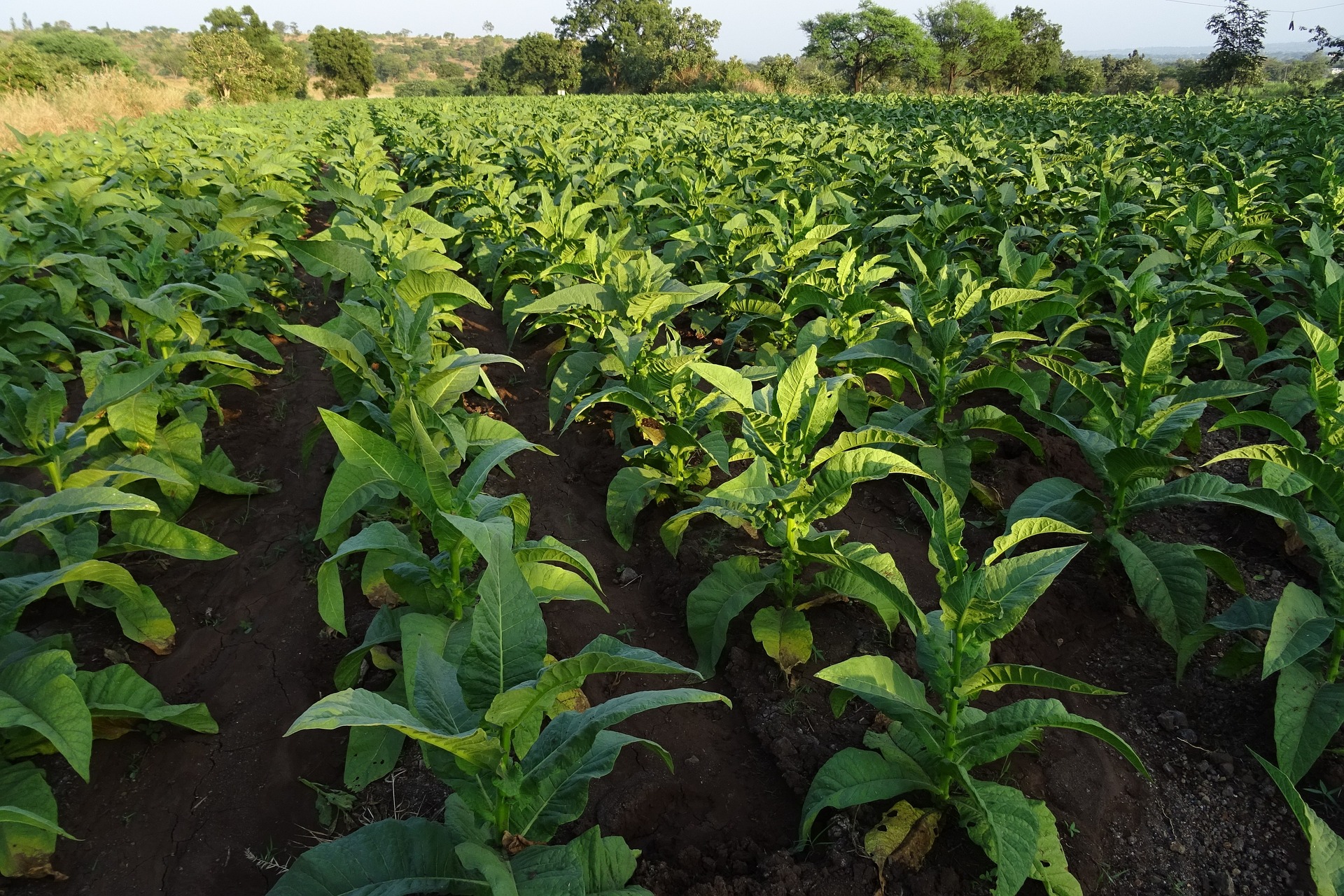In recent months, border authorities in South Africa have confiscated cigarettes smuggled from Zimbabwe, where the contraband is reportedly easily accessed, driven by the country’s top tobacco production.

The cheap cigarettes make up a multi-million dollar industry, and for Zimbabweans such as twenty-seven-year-old Oswald Ndebele, who is based in Johannesburg, South Africa’s commercial capital, the health implications are the last thing on his mind.
A new report raises concerns about the health implications of smoking, citing a global increase in cardiovascular diseases.
“These streets are mean, we need to relieve stress, and smoking only makes sense,” said Ndebele, who is among tens of thousands of Zimbabweans eking out a desperate living in South Africa.
“Sometimes, I ask the cross-border transporters to bring me cigarettes. Everyone I know here seems to smoke,” he said.
Least-developed countries, including those in Africa, have been identified as having weak mechanisms to address smoking and reduce cardiovascular diseases.
However, a new report raises concerns about the health implications of smoking, citing a global increase in cardiovascular diseases.
Least-developed countries, including those in Africa, have been identified as having weak mechanisms to address smoking and reduce cardiovascular diseases.

While Ndebele and many smokers here refer to cigarettes as “cancer sticks,” their concerns are lung diseases; the World Heart Federation (WHF) report released in May 2023 says cardiovascular diseases have increased because of an uptick in smoking, especially in sub-Saharan Africa.

“Deaths from cardiovascular disease (CVD) jumped globally from 12.1 million in 1990 to 20.5 million in 2021,” the WHF said.
“The data doesn’t lie,” said Professor Fausto Pinto, co-author of the report and former president of the World Heart Foundation.
“This report confirms the serious threat that cardiovascular disease poses all over the world, particularly low and middle-income countries,” Pinto said at the report’s launch during this year’s World Heart Summit.
While smoking had slowed down in developed countries, it had spiked in Africa.
The report names tobacco as one of the major contributors — alongside high blood pressure and air pollution — to cardiovascular diseases at a time African countries are promoting the production of what is termed “green gold,” as the continent’s governments seek much need forex earnings.
Only 45 percent of sub-Saharan African countries spend five percent of their Gross Domestic Product on health.
According to the WHF, statistics for sub-Saharan Africa remain grim: “The death rate in sub-Saharan Africa was 1.2 times higher than higher-income regions in 1990, whereas, by 2019, the gap had grown to 2.1 times,” the report said.
“Up to 80 percent of premature heart attacks and strokes can be prevented. It’s vital that countries prioritize rolling out tools and policies to protect people from cardiovascular diseases,” said Professor Pinto.
“The lowest level of policy implementation was found in sub-Saharan Africa where over half the countries do not have cardiovascular drugs in primary care facilities.”
With numerous studies noting Africa as a growing population, researchers say this has provided new entrants into smoking, further exposing smokers to what are seen as premature deaths.
“Africa is home to more than one billion people and is a major contributor to the global burden of cardiovascular disease,” the WHF said, adding that “in 2019, more than one million deaths were attributable to CVD in sub-Saharan Africa, which constituted 5.4 percent of all global CVD-related deaths and 13 percent of all deaths in Africa.”

Last year, the University of Chicago’s Tobacco Atlas found that while smoking had slowed down in developed countries, it had spiked in Africa, and the WHF report raises the same concerns, citing poor policy implementation by governments in the continent.
The World Health Organization has also raised concerns about tobacco consumption, noting that more than eight million people die annually due to tobacco-related deaths.

“In Africa, tobacco crop yields increased by 10 percent between 2012 and 2018. Its impact is felt far beyond the eight million people it kills with the disease every year; it also threatens the Earth’s resources, contributes to poverty, and exposes tobacco farmers to health risks,” says the World Health Organisation.
Amid those concerns, the WHF says more public funding in the health sector is required to put the brakes on what is seen as a preventable loss of lives.
“The death rate in sub-Saharan Africa was 1.2 times higher than higher-income regions in 1990, whereas, by 2019, the gap had grown to 2.1 times.”
“Investing in healthcare saves lives,” said Professor Mariachiara Di Cesare of the Institute of Public Health at the University of Essex, which compiled and analyzed data in collaboration with the WHF.
“This evidence is indisputable. According to WHO recommendations, countries must invest at least five percent of their Gross Domestic Product (GDP) in healthcare to help reduce CVD death rates and morbidity,” Cesare said.

However, the report found that only 45 percent of sub-Saharan African countries spend five percent of their GDP on health.
The WHF found that two-thirds of surveyed countries had implemented global public health recommendations, including national tobacco control programs.
“The lowest level of policy implementation was found in sub-Saharan Africa where over half the countries do not have cardiovascular drugs in primary care facilities, a cardiovascular national plan or non-communicable diseases unit,” the report said.

With African countries producing and driving the bulk of global tobacco consumption, the work of African governments could be cut out in light of the World Heart Foundation report as the continent continues to struggle with already burdened public health services.
“Good data can help drive good policy – the report’s recommendations make clear that the opportunity is still there to accelerate action toward reducing premature mortality from NCDs by one-third by 2030,” said Pinto.
_________________________________________________________________________________________________
Marko Phiri is a Zimbabwe-based journalist writing on the intersection of climate change and development in Africa.
